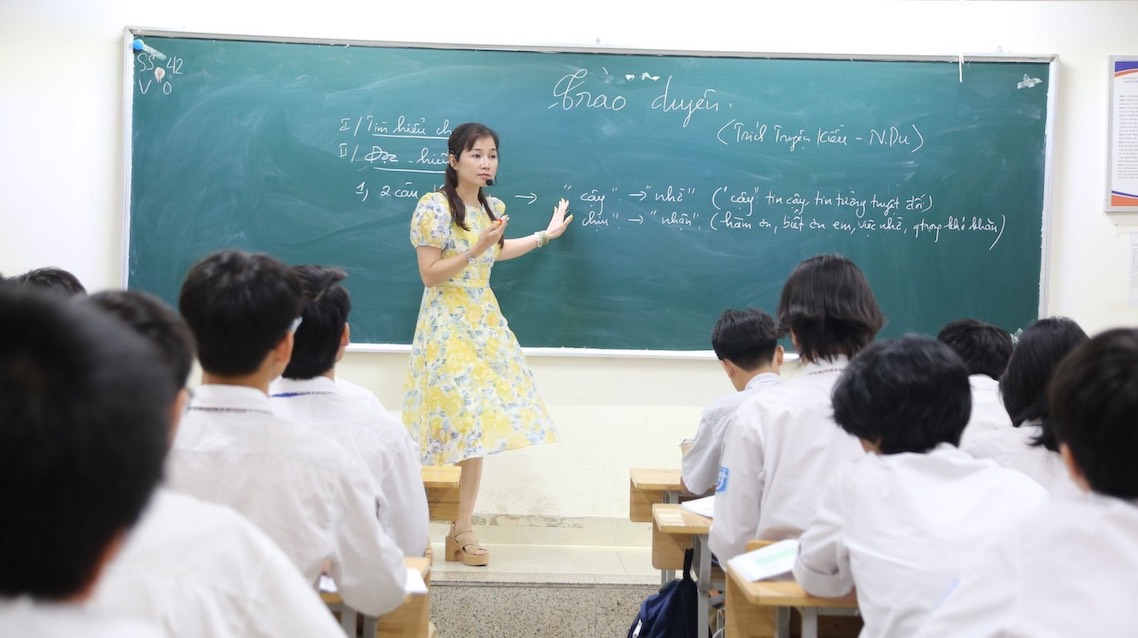The Ministry of Education and Training (MOET) issued Official Letter No. 4567/BGDDT-GDPT on guiding the organization of 2 sessions/day teaching for general education to concretize Directive No. 17/CT-TTg dated June 6, 2025 of the Prime Minister on organizing 2 sessions/day teaching and organizing summer activities for children and pupils; at the same time, concretize the policy of fundamental innovation of education and training of the Party and State in the spirit of Resolution 29-NQ/TW.
This document replaces Official Letter No. 7291/BGDDT-GDTrH dated November 1, 2010.
Overcoming the situation of illegal extra teaching and learning
According to the Ministry of Education and Training, the issuance of documents guiding the organization of teaching and learning in 2 sessions/day aims to improve the quality of comprehensive educational activities; the quality of regular school hours; overcome the situation of extra teaching and learning that is not in accordance with regulations; build a healthy and safe educational environment, ensuring fairness in access to education.
At the same time, effectively using the existing teaching staff, facilities, and teaching equipment, contributing to the implementation of innovation in teaching methods and testing and evaluation towards developing students' abilities and qualities; promoting socialization to develop education, etc.
The Ministry of Education and Training requires teaching 2 sessions/day to ensure the goal of effectively implementing the General Education Program's goals, not causing overload, being suitable for students' psychology and health, and being suitable for the actual conditions of the school, locality, etc.
The policy of socializing education must ensure the principles of voluntariness, publicity, transparency, no compulsion, and compliance with legal regulations; effectively using facilities, teaching equipment and teaching staff, promoting the proactive and creative role of professional groups.
The Ministry clearly defines teaching and learning in 2 sessions/day as follows: Session 1 is the time to implement the regular general education program. Round 2 is the time to organize supplementary educational activities, capacity development, fostering excellent students, and supporting students who have not met the requirements of the General Education Program,.... according to the comprehensive development orientation in accordance with the psychology of students at each level.

Organizing the first and second sessions can be flexible in time, balanced in time (not fixed in the morning as the first session and in the afternoon as the second session), suitable for the conditions of each school.
The Ministry encourages educational institutions to diversify teaching methods to organize educational activities to improve the quality of comprehensive education for students.
Ensure that students, teachers and parents are not overloaded
Before organizing, general education institutions are responsible for surveying students' learning needs in the second session before starting the new school year to have a plan to organize educational content to meet students' learning needs and in accordance with school conditions. The plan, content, and timetable for teaching 2 sessions/day for students should be made public on the school's information page and disseminated to parents. Educational institutions fulfill their responsibility to explain to management agencies and social forces when required, etc.
In addition, general education institutions develop lunch and lunch plans with content and form suitable to actual conditions to ensure consensus and voluntariness of students, parents and according to regulations on school safety, food hygiene, nutrition and health for students.
Departments of Education and Training guide general education institutions in the area to develop a plan to organize teaching and learning 2 sessions/day in accordance with practical situations, ensuring a clear implementation roadmap and mobilized resources. The arrangement of teachers and facilities must be based on local practice and conditions, ensuring that there is no overload for students, teachers and parents.











